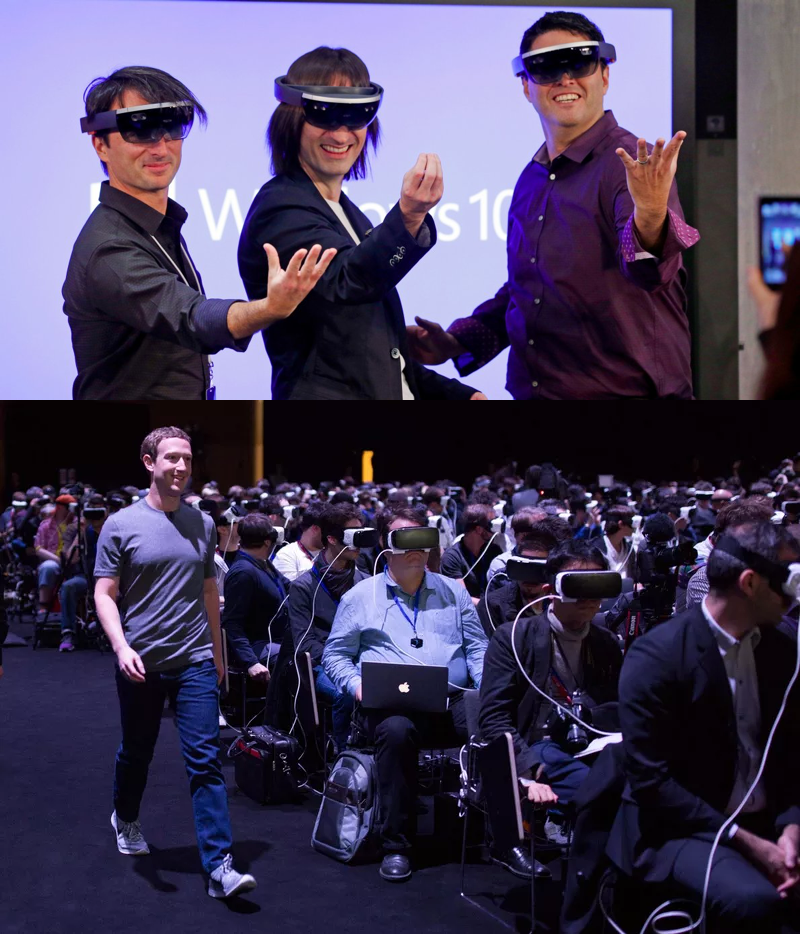VR Is Not The Future
17 March 2016
Virtual Reality (or VR) is a fantasy that many geeks love. It's in books, in movies, in games. In our collective mind, virtual reality is like flying cars: it's a dream that we always envisioned for our future as an high tech society.
Well, we all remember that we didn't get flying cars for the new millenium.
Incredible technologies portrayed in science-fiction books or movies are generally not really that relevant in reality. Or they are so hard to build that we can't even fathom to create them now. In our history, the way our society evolved was often very different to how we imagined it in our fictions. When you confront with the reality, many dreams are just what they are: dreams. I would need to dig up some sociology courses that I had—but I remember that this is a recurrent theme in our evolution.
For VR, it's a bit different: we (almost) have the technology. However, I do think that it's just a fad. A fad that excites many marketers or entrepreneurs. Real-world applications are so narrow.
VR is a cool demo. VR is impressive. Even with our primitive VR technologies, it's still incredible to try.1
VR is also making people sick—yes, many people suffer from motion sickness.
VR is pretty boring for games, its main application right now. Yes, the immersion is better. Nop, the controls are worse. You can't move in a game without hitting a wall. You can't use your hands without complex gloves or other utensils. The possibility are not that huge: okay, it might be great for some first-person games where you don't move. But that's just a small subset of all the games we can create.
VR is ugly. VR is cumbersome. VR is like Google Glass (remember that?) in so many ways.

If you're at home, it might be fine, although that wearing another thing on your head is not that comfy. I already wear glasses, I really don't want to add something more on my head, I assure you. Especially if it means that I might hit a wall someway.2
Outside? At work? We are going to need many years to be okay with that.
The day we'll be able to have VR headsets the size of a regular pair of glasses is far. We might be already destroying our eyes by viewing screens all day—I can't wait to wear VR headsets a few centimeters from my retinas all the time!
VR is not completely useless. There's some fields where virtual reality might be useful. Want to visit a new flat in a town far far away? You're a future surgeon and you need to practice during your school years? There's a myriad of applications outside of gaming and home uses.
Unfortunately, right now, people imagine that VR will be used to handle and manipulate softwares, computers or playing games. That's absurd.
Using VR to work on scenes in the Unity Editor: @timoni's demo on-stage at #GDC16: https://t.co/tbUmVAemBU #unity3d pic.twitter.com/T1EH8MsLWb
— Ben Pitt (@robotduck) March 15, 2016
Seriously? Who would do that? What the point? Who in their right mind thought it was a good idea!?
When I say that VR is not the future, I don't mean that VR will disappear completely. But we need to take a step back and really think about it. We need to stop to try to put VR everywhere—it's just a waste of time.
The only application that will make VR a general use product might be porn. Honestly, except for that, I don't see a future where VR is ubiquitous. That just doesn't make any sense.
Virtual reality is a fad. And right now, journalists and tech companies are all buzzing and craving for that. When the first officially released headsets will be available, I expect a massive flop. As soon as the novelty wears off, people will just forget it. Because outside of some narrow use cases, it's just not practical or invisible enough.